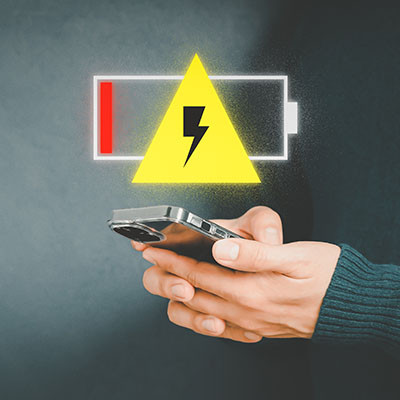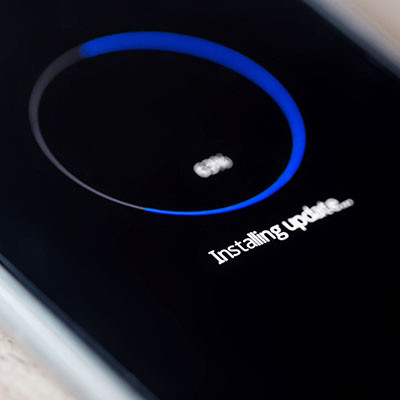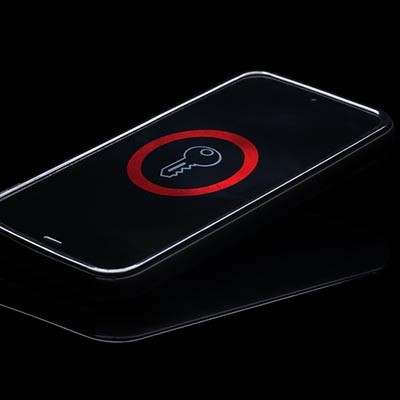This year, we’re making a resolution to help more businesses than ever, and part of that is ensuring they have access to the best technology solutions around. If you aren’t satisfied with your current phone infrastructure, we have some good news for you. You don’t have to rely on traditional telephone systems, and there is a better alternative out there in Voice over Internet Protocol (VoIP).
ImageSys LLC Blog
The smartphone is right there with your car keys and your wallet with the must-haves when you leave the house. You’ll also find yourself laying on your couch or in bed staring at it for an hour. They are a tool that everyone seemingly uses all the time, and can be a huge benefit for individual productivity.
We’ve all found ourselves in a pickle due to a dead smartphone battery, and if not, you’ve been living with a charger perpetually on your person. What is it that kills a smartphone’s battery so quickly?
As it turns out, a lot of things impact your smartphone’s capability to hold and maintain a charge over time. Let’s run through the list of factors that you could encounter, and how you can address them.
Zero-day vulnerabilities are never fun, but this is especially the case with popular devices, like the many that use the Samsung Exynos modem. Google’s Project Zero has discovered 18 such vulnerabilities in these chips, four of which allow for remote code execution. Why should you be concerned about these vulnerabilities and what can you do to minimize your risk?
Look, no one has perfect spelling or grammar, which is why autocorrect as a feature exists in text-based applications. That said, it can often provide you with inaccurate or context-clueless suggestions, leading to much confusion and frustration. Let’s take a look at how you can make autocorrect work better for you, or if you are just sick of it altogether, disable it.
If you use Android devices, then you should know that updating your operating system is incredibly important. You’ll get the latest patches and fixes for various bugs, but you’ll also receive important security updates that will help you stay safe while using your device. Today, we want to walk you through how to update your Android device to the latest version of its operating system.
If you’ve found yourself in the position where your smartphone or tablet is missing, you need to act fast. Time is of the essence, particularly if you have reason to believe your device was stolen. Whether someone absconded with it or you simply forgot it at lunch, here are the critical steps you need to take now—whether you’re an Apple user or on Android.
It isn’t as though anyone wants to lose their smartphone—for some, the very thought is almost debilitating. However, accidents can happen, so before one does, it only makes sense to put yourself in the best position to deal with a lost mobile device. The process for doing so will differ based on whether your device operates on Android or iOS.
Chances are, you own a smartphone, and that device helps you to manage quite a bit, both personally and professionally. As smartphones have risen in importance, they have also drawn the attention of hackers who attack via malicious applications. Here, we wanted to offer some tips that can help you spot these malicious apps before falling victim.
What would you think if I told you that you could break your smartphone by setting the wrong picture as its background? Well, you had better start thinking it, as a photograph has been discovered that has precisely that effect when it is set as the wallpaper. Let’s unwrap this admittedly crazy story to get a better handle on the situation.
I’d be willing to bet that your phone is within reach at the moment, assuming you aren’t actively using it to read this blog right now. The tendency that people have to always have their phones on them has contributed to these devices becoming more deeply integrated into work processes - including security, via two-factor authentication. For this week’s tip, we’ll discuss how you can leverage an Android device as an added security measure.
Smartphones are some of the most important pieces of technology on the open market. In fact, more computing is done today with just a device that can fit in your pocket than was ever done when all there was were PCs. For this reason, people are buying smartphones that are priced much like high-end PCs. Manufacturers have responded to this demand by upgrading their devices every year.
Does your skin crawl with the thought of what would happen if you lose track of your smartphone? These days, a lot of users keep a plethora of personal information on their mobile devices, which makes a loss all the more dangerous for them. How can you make sure that your mobile device doesn’t accidentally become a treasure trove of information for any hackers or thieves who might try to steal it?















